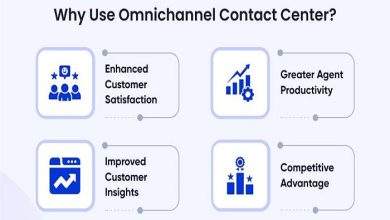
Human resource management often becomes a costly and time-consuming burden for businesses of all sizes. Between payroll processing, benefits administration, compliance tracking, and employee relations, HR departments frequently struggle to balance efficiency with effectiveness. However, smart optimization strategies can transform your HR operations from a resource drain into a competitive advantage.
The Hidden Costs of Inefficient HR Operations
Many organizations underestimate the true cost of poorly managed HR services. Beyond obvious expenses like salaries and software licenses, inefficient processes create hidden costs that compound over time. Manual data entry leads to errors requiring costly corrections. Delayed employee onboarding extends time-to-productivity for new hires. Compliance oversights can result in expensive penalties and legal fees.
Research indicates that companies spend an average of 40% of their HR budget on administrative tasks that could be automated or streamlined. This represents thousands of dollars in wasted resources for small businesses and millions for larger enterprises.
Automation: Your First Step Toward Efficiency
Streamline Routine Tasks
The most immediate gains come from automating repetitive administrative tasks. Modern HR information systems can handle everything from leave requests to performance review scheduling without human intervention. Automated workflows reduce processing time by up to 70% while eliminating human error.
Consider implementing automated systems for:
- Employee time tracking and attendance monitoring
- Benefits enrollment and changes
- Document management and storage
- Compliance reporting and deadline tracking
Digital Onboarding Solutions
Traditional paper-based onboarding processes can take weeks to complete and often leave new employees feeling disconnected. Digital onboarding platforms compress this timeline into days while improving the experience. New hires can complete paperwork, access training materials, and connect with their teams before their first day.
Strategic Outsourcing for Maximum Impact
Identifying Core vs. Non-Core Functions
Not every HR function requires in-house expertise. Strategic outsourcing allows you to focus internal resources on activities that directly impact your business while transferring specialized tasks to expert providers. This approach works particularly well for functions requiring deep technical knowledge or significant compliance oversight.
Cost-Effective Service Partnerships
Outsourcing certain HR functions often costs less than maintaining internal capabilities. Third-party providers achieve economies of scale that individual companies cannot match. For example, outsourced payroll services in Salt Lake City typically cost 60% less than maintaining an equivalent in-house team while providing superior accuracy and compliance protection.
When evaluating outsourcing opportunities, calculate the total cost of ownership for internal processes, including salaries, benefits, training, software, and overhead expenses. Compare this against outsourced solutions that typically charge predictable monthly fees.
Technology Integration for Seamless Operations
Unified HR Platforms
Modern HR platforms integrate multiple functions into single systems, eliminating data silos and reducing administrative overhead. These solutions typically include:
- Payroll processing and tax management
- Benefits administration and enrollment
- Performance management and reviews
- Recruiting and applicant tracking
- Learning management and development
Unified platforms reduce software costs, simplify training requirements, and improve data accuracy through automated synchronization.
Analytics-Driven Decision Making
HR analytics transform reactive management into proactive strategy. Modern systems track key metrics like employee turnover rates, time-to-hire, and training effectiveness. These insights help identify problems before they become expensive and guide resource allocation decisions.
Building Efficient Processes That Scale
Standardization Reduces Complexity
Standardized processes reduce training time, minimize errors, and enable consistent experiences across your organization. Document best practices for common HR activities and create templates for frequently used communications. This approach ensures quality while reducing the time investment for each transaction.
Employee Self-Service Capabilities
Self-service portals empower employees to handle routine requests independently, reducing HR workload while improving response times. Employees can update personal information, request time off, access pay stubs, and enroll in benefits without HR intervention.
Measuring Success and Continuous Improvement
Track key performance indicators to measure optimization success. Focus on metrics like cost per employee, time-to-fill open positions, employee satisfaction scores, and compliance audit results. Regular assessment helps identify new optimization opportunities and ensures sustained improvements.
Successful HR optimization requires commitment to continuous improvement. Technology evolves rapidly, and business needs change constantly. Regular process reviews and technology updates ensure your HR operations remain efficient and cost-effective over time.
Optimizing HR services creates lasting competitive advantages through reduced costs, improved efficiency, and enhanced employee experiences. Start with quick wins like automation and self-service capabilities, then gradually expand to strategic partnerships and advanced analytics. The investment in optimization pays dividends through reduced administrative burden and improved organizational performance.




